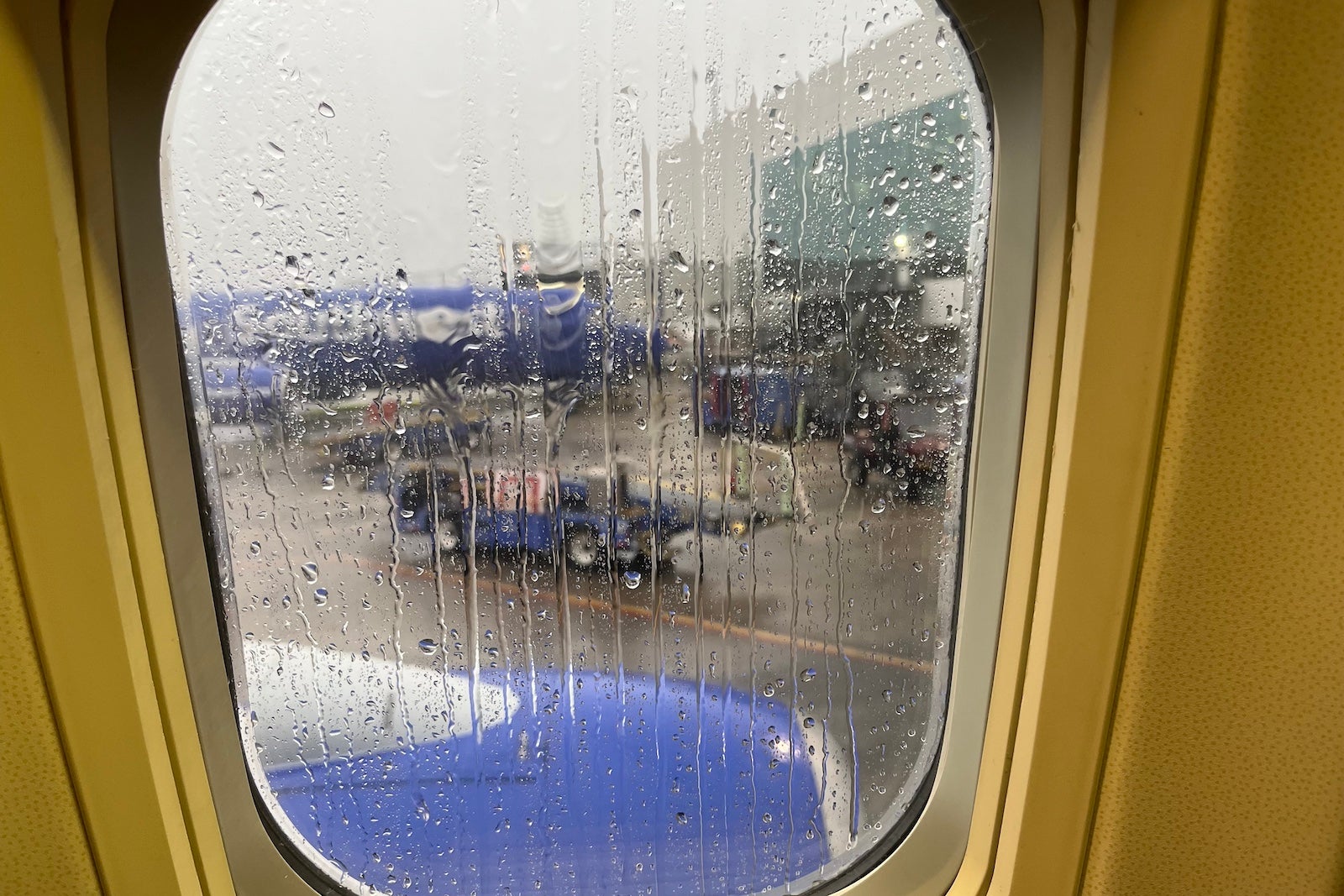Thousands of flights canceled as Beryl makes landfall in US
Flight cancellations are piling up Hurricane Beryl menaces the Texas Gulf Coast. Airlines have canceled more than 1,300 flights Monday amid concerns over the storm’s heavy rains and high winds, which are expected to produce dangerous storm surge conditions and hamper travel in parts of the country.
Coastal cities in Texas are expected to feel the brunt of the storm through Monday evening, according to the National Hurricane Center, after Beryl made landfall overnight as a Category 1 hurricane.
Monday’s flight disruptions are most heavily concentrated at Houston’s two major airports.
Nearly 80% of departures have been scrapped for Monday at Houston’s George Bush Intercontinental Airport (IAH), with 519 cancellations and counting as of 7:30 a.m. ET, according to data from flight-tracking site FlightAware.
Want more airline-specific news? Sign up for TPG’s free biweekly Aviation newsletter.
Overnight, the airport took to social media to warn travelers of the impending disruptions. The airport said it’s working to “streamline operations” in the midst of the storm. United Airlines flights are operating out of the airport’s Terminal C Monday, with Terminal B temporarily closed. The TSA checkpoint at Terminal D is operating at reduced capacity, too, the airport said.
United Airlines, which operates a major hub out of Houston’s Intercontinental, leads all U.S. airlines with more than 400 cancellations for Monday, about 14% of its operation, FlightAware data shows.
Southwest Airlines is second with 268 cancellations, network-wide — about 5% of its Monday schedule. Southwest is the top carrier at Houston’s William P. Hobby Airport (HOU), where around 60% of departures have been canceled for Monday.
Help! Here’s what to do if your flight is canceled or delayed

Daily Newsletter
Reward your inbox with the TPG Daily newsletter
Join over 700,000 readers for breaking news, in-depth guides and exclusive deals from TPG’s experts
Several airlines have issued travel alerts amid the storm. These advisories typically allow customers flying to, from or between certain affected cities, even when flying on ordinarily restrictive tickets. Notably, both United and Southwest have issued alerts for key airports in Texas, including Houston’s two major airports as well as Austin Bergstrom International Airport (AUS) and San Antonio International Airport (SAT).
Beryl’s flight disruptions in the U.S. come after the storm left a trail of destruction in parts of the Caribbean and Latin America. The storm caused significant damage in Jamaica, before hitting Mexico, causing major flight cancellations over the weekend at Cancun International Airport (CUN) and the new Tulum International Airport (TQO) — but the region was spared from more catastrophic impacts, according to reports there.
Monday’s disruptions in the U.S. follow more than 600 cancellations Sunday, on what was poised to be one of the busiest air travel days of all time, with travelers returning from Fourth of July getaways.
If you have travel plans for Monday, be sure to heed the warnings from the National Weather Service and local authorities, first and foremost, when deciding whether to head to an airport or travel to a potentially affected area.
Download your airline’s app and monitor it closely for potential signs of trouble, and options for re-booking in the event your itinerary is affected.
Read up on your rights as a flyer, too. Keep in mind, under U.S. Department of Transportation policy, you’re entitled to a refund for the unused portion of your trip if your flight is canceled or significantly delayed for any reason — though that only applies if you ultimately choose not to fly, and don’t accept re-booking from the airline.
If you do run into travel disruptions due to the storm, consider whether you have a travel insurance plan or trip insurance protections through a credit card that might help you recoup any incurred costs. Typically, any insurance plans must have been purchased prior to the storm being named in order to be claim-eligible. And, most often, if you have travel insurance through a credit card, you’ll need to have booked the trip with that card in order to be eligible for the protections.
Related reading:

